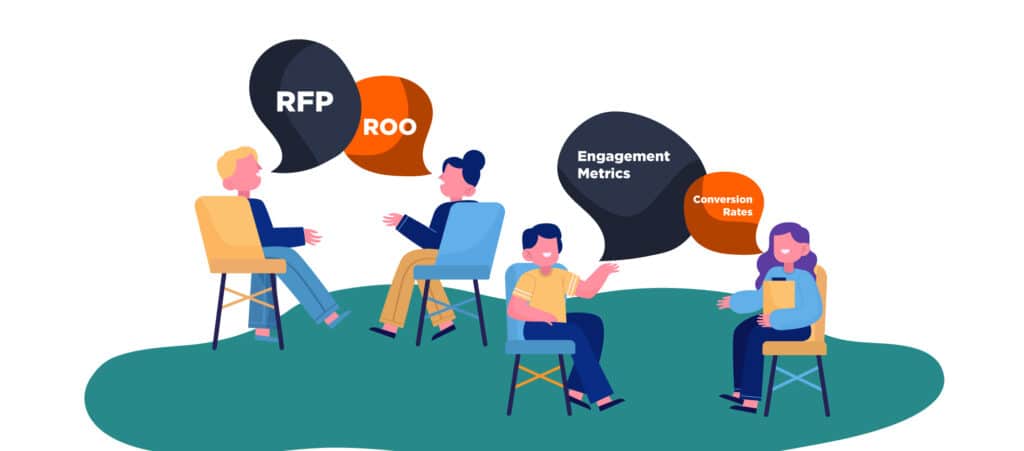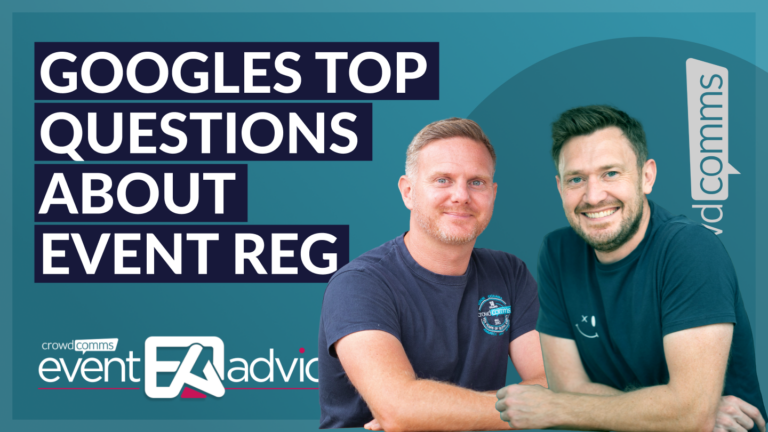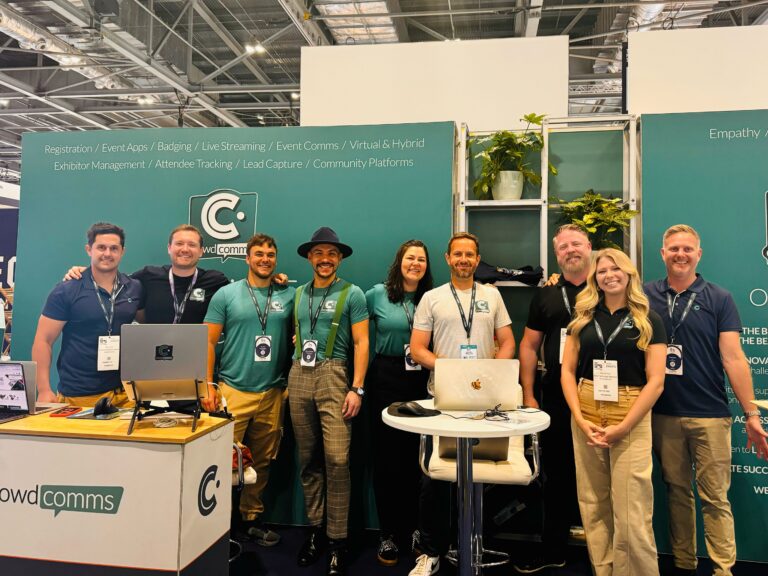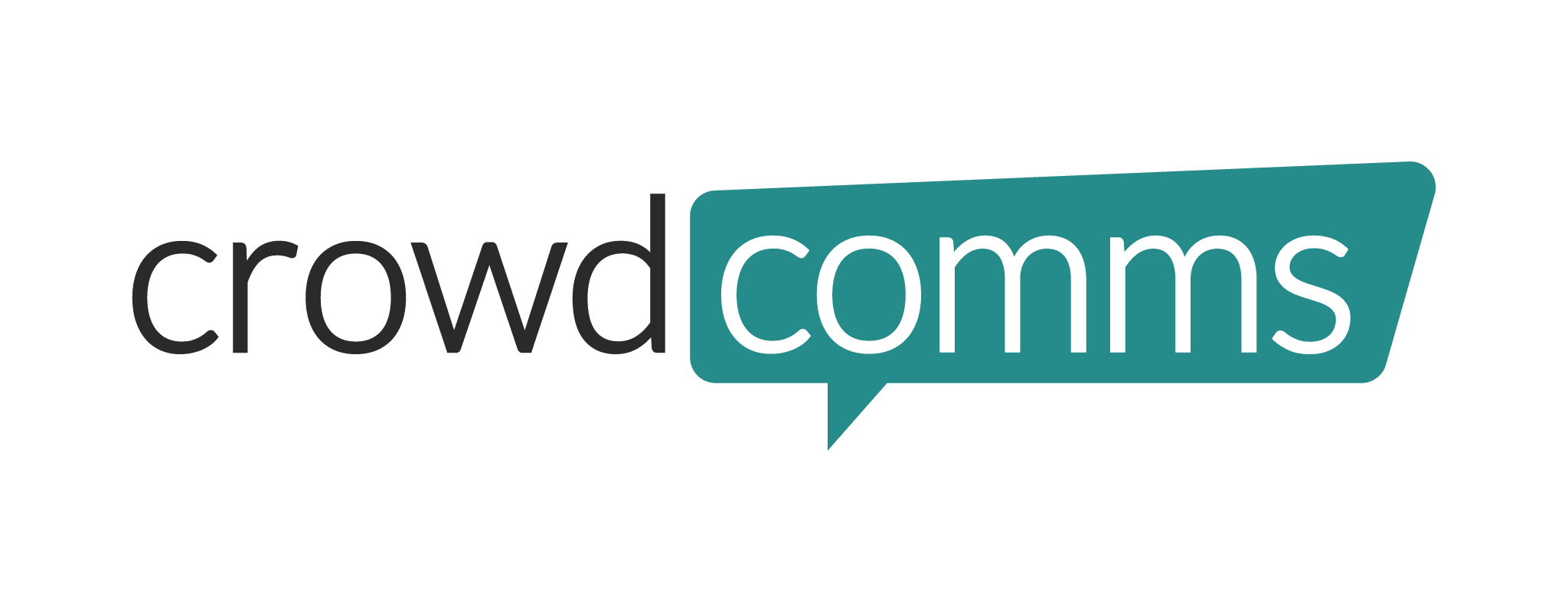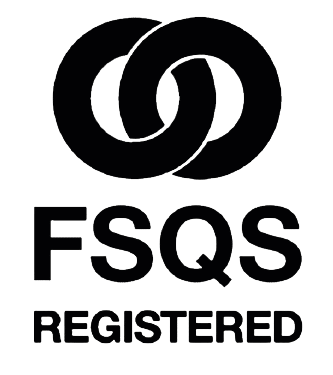
Welcome to the world of event industry jargon, a baffling language that can leave even the most experienced event professionals scratching their heads. This specialized lingo, filled with acronyms and unique phrases, is a common feature in many industries, and events is no different. And while it can seem like a secret code designed to confuse newcomers, it actually serves an important purpose.
Understanding and using industry-specific jargon can streamline communication, increase efficiency, and demonstrate professionalism. But without a solid grasp of these terms, you risk miscommunication, mistakes, and missed opportunities.
So, whether you’ve found yourself lost in translation at a meeting or you are new to the events industry, this blog post is for you. We’ll decode some of the most common jargon used in the events industry, turning you from a jargon novice into a seasoned pro. Ready? Let’s dive in!
Examples of Jargon in Event Planning and Management
1. Run-of-Show: Example: In a music festival, the run-of-show could dictate the order of performances on different stages, the duration of each set, intermissions, and special acts, ensuring that everything runs according to plan and attendees can navigate the event seamlessly.
- Meaning: Run-of-show (ROS) refers to the detailed schedule or plan outlining the sequence of events and activities during an event. It includes timings, segments, performances, speakers, and other key elements.
- Usage: Event organisers create a run-of-show to ensure smooth execution and coordination of various components throughout the event. It helps in managing time, resources, and personnel effectively. For instance, a conference’s run-of-show might include keynote speeches, panel discussions, breaks, and networking sessions, specifying start and end times for each.
2. Load-in/Load-out: Example: When organising a trade show, load-in involves transporting booths, displays, and merchandise into the exhibition hall, while load-out involves dismantling the booths and packing up materials at the end of the event to clear the venue promptly.
- Meaning: Load-in refers to the process of bringing equipment, materials, and supplies into the event venue before the event begins. Load-out is the reverse process of removing these items post-event.
- Usage: Event planners and production teams coordinate load-in and load-out logistics to ensure efficient and timely setup and teardown of event elements. This involves scheduling delivery trucks, managing venue access, and organizing teams for setup and teardown.
3. Green Room: Example: a high-profile awards ceremony, the green room might be reserved for celebrities, allowing them to relax, rehearse acceptance speeches, or receive last-minute instructions before presenting awards on stage.
- Meaning: A green room is a designated backstage area at an event venue where performers, speakers, or VIP guests can relax, prepare, or wait before going on stage or interacting with attendees.
- Usage: Green rooms provide a private space for individuals involved in the event to gather their thoughts, rehearse, or simply unwind before their appearance. They are equipped with amenities such as seating, mirrors, refreshments, and sometimes A/V equipment.
4. A/V (Audio/Visual): Example: During a corporate conference, A/V equipment is used for keynote presentations, displaying slides, videos, and ensuring clear sound quality for the audience, enriching the overall delivery of information and engaging attendees effectively.
- Meaning: A/V refers to Audio/Visual equipment and technology used for presentations, sound systems, lighting, screens, projectors, microphones, and other multimedia elements.
- Usage: A/V plays a crucial role in events, enhancing presentations, performances, and overall attendee experience. Event planners coordinate with A/V technicians or companies to ensure the proper setup, functionality, and synchronization of audio and visual elements.
Understanding these terms helps those new to event planning and event marketing to navigate their roles more effectively.
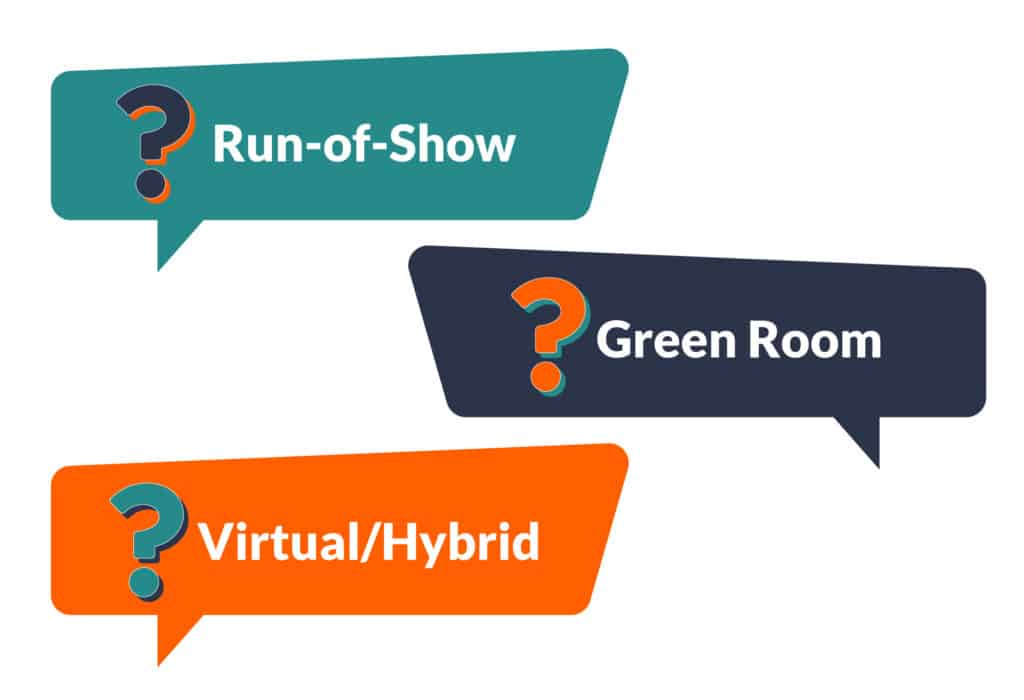
Common Jargon used in Event Sales and Marketing
If you’re heading for your first role in event sales and marketing, there’s a good chance you’ll come across some jargon related to this area. Here are three terms commonly used in event sales and marketing that you can add to your vocabulary:
1. RFP (Request for Proposal):
- Meaning: An RFP is a formal document that event organizers use to request proposals from vendors, agencies, or suppliers for services or products required to execute an event. It outlines event specifics, requirements, and expectations.
- Usage in Event Marketing: Event marketers use RFPs to source services critical for event success, such as venue selection, catering, A/V, or promotional services. For instance, an event marketing team might issue an RFP to select a digital marketing agency to handle promotional campaigns for an upcoming conference.
2. ROI (Return on Investment):
- Meaning: ROI measures the profitability or effectiveness of an investment relative to its cost. In event marketing, it assesses the return gained from resources allocated to the event, including financial, time, and effort investments.
- Usage in Event Marketing Strategy: Event marketers calculate ROI to evaluate the success of their promotional efforts, ticket sales, or lead generation activities. For instance, if an organization spent $10,000 on an event and generated $50,000 in sales as a direct result, the ROI would be calculated as (Sales Revenue – Event Cost) / Event Cost *100.
3. ROO (Return on Objectives):
- Meaning: ROO measures the success of an event based on achieving predefined objectives and goals, such as brand awareness, customer engagement, or lead generation. Unlike ROI, which focuses on financial outcomes, ROO considers non-monetary outcomes.
- Usage in Event Marketing Strategy: Event marketers use ROO to assess if their event achieved its intended purpose and made an impact on their target audience. This could include tracking social media engagement, surveying attendees for feedback, or monitoring post-event sales. ROO can also help inform future event marketing strategies by identifying areas of improvement. Overall, understanding these terms will enhance your knowledge and effectiveness in the world of event sales and marketing!
4. KPIs (Key Performance Indicators):
- Meaning: KPIs are quantifiable metrics used to measure the performance and success of specific objectives within an event marketing strategy. These indicators help assess progress toward marketing goals.
- Usage in Event Marketing Evaluation: Event marketers define KPIs based on their marketing objectives, such as ticket sales, brand awareness, social media engagement, or lead generation. They monitor these KPIs throughout the event campaign to gauge performance and make informed adjustments if necessary.
5. Target Audience:
- Meaning: The target audience refers to the specific group of individuals or demographics that event marketers aim to attract and engage with their event. It involves understanding the characteristics, interests, and preferences of the ideal attendees.
- Usage in Event Promotion: Event marketers tailor their promotional strategies, messaging, and content to resonate with the target audience. For instance, if organizing a technology conference, the target audience might include tech enthusiasts, industry professionals, and entrepreneurs interested in innovative solutions.
- Engagement Metrics:
- Meaning: Engagement metrics quantify the level of interaction, participation, or interest that attendees exhibit towards an event. These metrics encompass social media interactions, website traffic, attendee interactions during the event, etc.
- Usage in Event Marketing Evaluation: Event marketers track engagement metrics to assess the level of audience involvement and interest before, during, and after the event. This includes measuring social media shares, event app usage, session attendance, and post-event surveys to gauge attendee satisfaction and involvement.
- Conversion Rate:
- Meaning: The conversion rate measures the percentage of individuals who take a desired action, such as purchasing a ticket, registering, or signing up, in response to a marketing effort.
- Usage in Event Promotion: Event marketers track conversion rates to evaluate the effectiveness of their promotional campaigns. For instance, if an email campaign promoting early bird ticket sales to a music festival resulted in 500 ticket purchases out of 10,000 emails sent, the conversion rate would be (Number of Conversions / Total Emails Sent) *100.
Event Marketing Scenario: How These Terms Drive Success
Let’s consider an event marketing scenario for how these terms could play out:
Scenario: A company is organising a sustainability conference aimed at environmental professionals and eco-conscious consumers. They have a limited marketing budget and want to maximize attendance.
Usage of Terms:
- RFP: The event team issues an RFP to select a digital marketing agency specializing in environmental causes to create and execute targeted online campaigns.
- Target Audience: They define the target audience as environmental professionals, activists, and consumers interested in sustainability topics.
- KPIs: The team sets KPIs focused on ticket sales, social media engagement, and email sign-ups to measure campaign success.
- Engagement Metrics: They monitor engagement metrics like social media shares, website visits, and email click-through rates to gauge audience interest.
- Conversion Rate: The team measures the conversion rate from promotional emails to ticket purchases to evaluate email campaign effectiveness.
- ROI: After the event, the team calculates ROI by comparing the revenue generated from ticket sales against the total event costs (marketing, venue, speakers, etc.).
By understanding and leveraging these terms effectively, the event team can tailor their marketing efforts, allocate resources wisely, and evaluate the success of their strategies, resulting in increased attendance and a successful event.
Event Type Jargon
It’s not just the terminology within events that you must get to grips with, the wider event landscape is equally important and there’s three core types of events the industry is talking about post pandemic.
- Hybrid Events:
- Meaning: Hybrid events combine elements of both virtual and in-person gatherings, allowing participation from attendees who are physically present at the event venue and those who join remotely via digital platforms.
- Usage in Event Planning: Hybrid events offer flexibility and widen the reach, attracting a global audience. Event organisers use various digital tools and strategies to ensure seamless integration and interaction between in-person and online attendees. For instance, live-streaming keynote speeches and organising virtual breakout sessions are common elements of hybrid events as are “virtual” elements of an event, before or after the in-person experience has been delivered.
- Virtual Events:
- Meaning: Virtual events are entirely online, with no physical venue or in-person attendance. These events utilise digital platforms to facilitate presentations, discussions, networking, and other activities typically found in in-person events.
- Usage in Event Planning: Virtual events eliminate geographical and logistical barriers, making them accessible to a global audience. Event organisers often use interactive features like live chats, Q&A sessions, and breakout rooms to engage attendees and mimic the experience of in-person events.
- In-Person Events:
- Meaning: In-person events occur at a physical location, with attendees present on-site. These traditional events provide face-to-face interaction and often include elements such as keynote speeches, workshops, networking activities, and exhibitions.
- Usage in Event Planning: In-person events offer unique opportunities for networking, collaboration, and experiential learning. Event organisers focus on logistical aspects such as venue selection, seating arrangements, audio-visual setups, and on-site services to create a memorable experience for attendees. These types of events may require more planning and resources compared to their virtual counterparts.
The Power of Jargon in the Events Industry
In the dynamic and fast-paced world of event planning and management, understanding and using industry-specific jargon can be a game-changer. It enhances communication among event professionals and demonstrates a level of expertise that sets you apart.
Whether you’re a marketing decision maker, event planner, or a want to be influencer in event tech, mastering the unique language of the events industry can be instrumental in delivering exceptional experiences, growing your customer base, and increasing engagement.
But remember that while jargon can be a powerful tool, it should never replace clear, straightforward communication. As we’ve seen across our CrowdComms customer base, our audience values transparency, easy relationships, and jargon-free explanations. So, use these terms wisely, and always ensure they aid, rather than hinder, understanding and event production.
Have you ever had a funny mix-up because of misunderstood jargon? Or perhaps there’s a term you’ve encountered in your work that you think others should know about. We’d love to hear about it! Feel free to share your stories or suggestions in the comments section below, and let’s continue the conversation.
Or, you can pick up the phone to our Commercial Director Lee Jack, who would be happy to help you cut through the jargon to help uncover what you really need.
